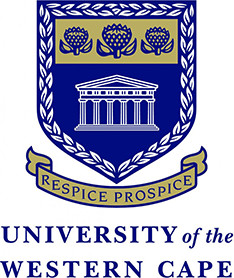Do sustainable development goals mean better funding for access to justice organisations?
The Millennium Development Goals (MDGs) were the first agreed-upon development agenda for all countries to follow 15 years ago.The eight MDGs – reduce poverty and hunger; achieve universal education; promote gender equality; reduce child and maternal deaths; combat HIV, malaria and other diseases; ensure environmental sustainability; develop global partnerships – failed to consider the root causes of poverty and overlooked gender inequality as well as the holistic nature of development. The goals made no mention of human rights and did not specifically address economic development.
While the MDGs applied to all countries, in reality they were considered targets for poor countries to achieve, with finance from wealthy states. Conversely, every country will be expected to work towards achieving the SDGs.Targets on Justice and Governance did not appear in the MDGs. With increasing evidence of the synergy between governance and justice and development, the 2030 Agenda now includes two targets which relate to Justice and Governance (see below).
An interesting question for many access to justice organisations working in Africa, including paralegal organisations, is whether 16.3 "ensure equal access to justice for all" read together with 17.3 "mobilize financial resources for developing countries" places an obligation on rich countries to fund the operation of legal aid and/or paralegal orgnisations in Africa? This may well depend on the detail relating to the indicators for the SDGs, which are still being developed.
The UN has conducted the largest consultation programme in its history to gauge opinion on what the SDGs should include. Establishing post-2015 goals was an outcome of the Rio+20 summit in 2012, which mandated the creation of an open working group to come up with a draft agenda. The open working group, with representatives from 70 countries, had its first meeting in March 2013 and published its final draft, with its 17 suggestions, in July 2014. The draft was presented to the UN general assembly in September 2014. Member state negotiations followed, and the final wording of the goals and targets, and the preamble and declaration that comes with them, were agreed in August 2015.
Alongside the open working group discussions, the UN conducted a series of “global conversations”. These included 11 thematic and 83 national consultations, and door-to-door surveys. The UN also launched an online My World survey asking people to prioritise the areas they’d like to see addressed in the goals. The results of the consultations were fed into the the working group’s discussions.The SDGs will be officially adopted at a UN summit in New York in September, and will become applicable from January 2016. The deadline for the SDGS is 2030. The document which will form the basis of discussions in September is Transforming Our World: The 2030 Agenda for Sustainable Development.
The indicators for the SDGs are still being worked out by an expert group. Each indicator is being assessed for its feasibility, suitability and relevance, and roughly two for each target are expected. The indicators are due to be finalised in March 2016.
_____________
Goal 16. Promote peaceful and inclusive societies for sustainable development, provide access to justice for all and build effective, accountable and inclusive institutions at all levels.
16.1 Significantly reduce all forms of violence and related death rates everywhere
16.2 End abuse, exploitation, trafficking and all forms of violence against and torture of children
16.3 Promote the rule of law at the national and international levels and ensure equal access to justice for all
16.4 By 2030, significantly reduce illicit financial and arms flows, strengthen the recovery and return of stolen assets and combat all forms of organized crime
16.5 Substantially reduce corruption and bribery in all their forms
16.6 Develop effective, accountable and transparent institutions at all levels
16.7 Ensure responsive, inclusive, participatory and representative decision-making at all levels
16.8 Broaden and strengthen the participation of developing countries in the institutions of global governance
16.9 By 2030, provide legal identity for all, including birth registration
16.10 Ensure public access to information and protect fundamental freedoms, in accordance with national legislation
and international agreements
16.a Strengthen relevant national institutions, including through international cooperation, for building capacity at
all levels, in particular in developing countries, to prevent violence and combat terrorism and crime
16.b Promote and enforce non-discriminatory laws and policies for sustainable development
Goal 17. Strengthen the means of implementation and revitalize the global partnership for sustainable development.
17.1 Strengthen domestic resource mobilization, including through international support to developing countries, toimprove domestic capacity for tax and other revenue collection
17.2 Developed countries to implement fully their official development assistance commitments, including the commitment by many developed countries to achieve the target of 0.7 per cent of ODA/GNI to developingcountries and 0.15 to 0.20 per cent of ODA/GNI to least developed countries; ODA providers are encouraged;to consider setting a target to provide at least 0.20 per cent of ODA/GNI to least developed countries
17.3 Mobilize additional financial resources for developing countries from multiple sources
17.4 Assist developing countries in attaining long-term debt sustainability through coordinated policies aimed at fostering debt financing, debt relief and debt restructuring, as appropriate, and address the external debt of highly indebted poor countries to reduce debt distress
17.5 Adopt and implement investment promotion regimes for least developed countries.


